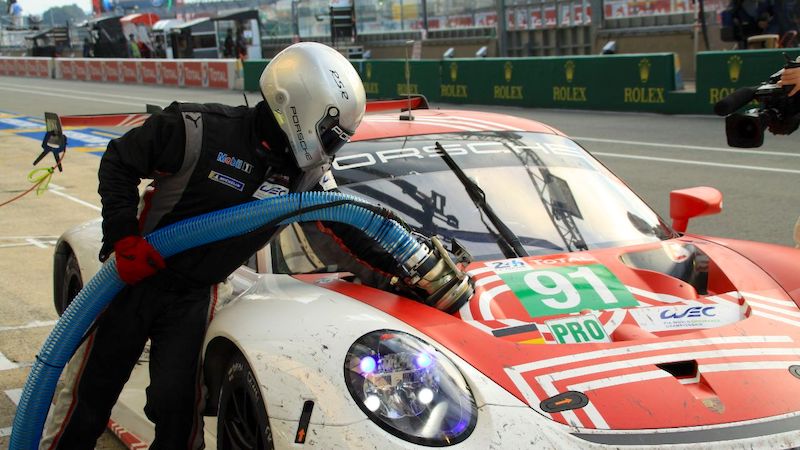
The WEC wants to achieve carbon neutrality with bio-petrol and hydrogen. An announcement at the 2021 24 Hours of Le Mans on the future direction of the WEC shed some light on how the organisers intend to achieve their goals.
In the eyes of global motorsport authority, the FIA, and sportscar rulemakers, the ACO, electric vehicles are by no means a “silver bullet” for carbon-neutral transportation. They believe that the future lies in a combination of various technologies, including hybrid powertrains, hydrogen, electric motors and biofuels, customised to each specific application. Now the WEC is acting on what it considers to be the direction the automotive industry is taking by setting in motion the next generation of sportscar competition.
Hybrid racing cars have been competing in endurance racing for almost a decade, and the new generation of Hypercars are now a firm fixture of the endurance landscape. The next element of the WEC’s green future will be introduced from 2022: a biofuel developed together with partner Total Energies.
Wine residues as racing fuel
The new biofuel, called Excellium Racing 100, is produced on a bioethanol basis and made from wine residues from the French agricultural industry, together with the additive ethyl tertiary-butyl ether (ETBE) produced at TotalEnergies’ Feyzin refinery near Lyon (France) from feedstock also sourced from by the circular economy.
Excellium Racing 100 will be available from 2022 for all participants in the FIA WEC, the 24 Hours of Le Mans and the European Le Mans Series. Total Energies claims that it will result in an immediate reduction of at least 65% of the racing cars’ CO2 emissions, with motorsport being used as a test bench before the fuel is made available commercially at filling stations.
Hydrogen an additional component
Hydrogen is another area of alternative technology currently under development. It is produced from renewable energies and is set to make its debut as a technology in the WEC from 2025. The WEC initially plans to introduce a separate hydrogen class that will be able to fight for race wins against other, more established concepts. Manufacturers will initially use a spec chassis developed by Red Bull Technologies in partnership with Oreca and a spec electric motor from Swiss firm GreenGT.
In the long term, the series intends hydrogen to be made available to all participants alongside biofuels and hybrid drivetrains. Manufacturers can customise their vehicle technologies as they see fit and achieve better synergies with road-going production. At the same time, hydrogen also opens the door to full carbon neutrality for the WEC. It will be some time before all of these changes are implemented, but the ambitious roadmap is certainly in place.
Via: Total Energies
